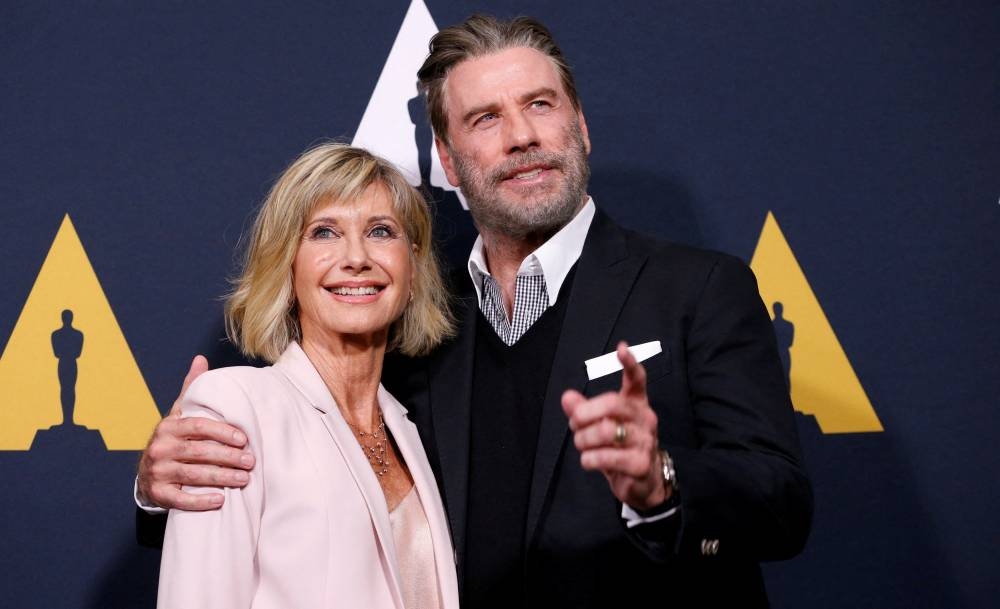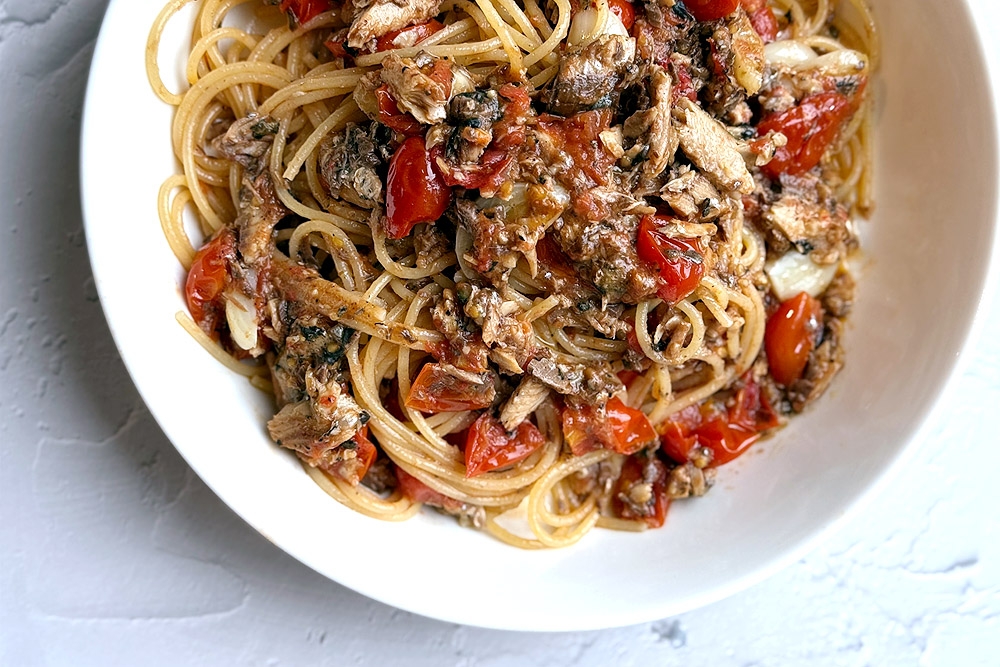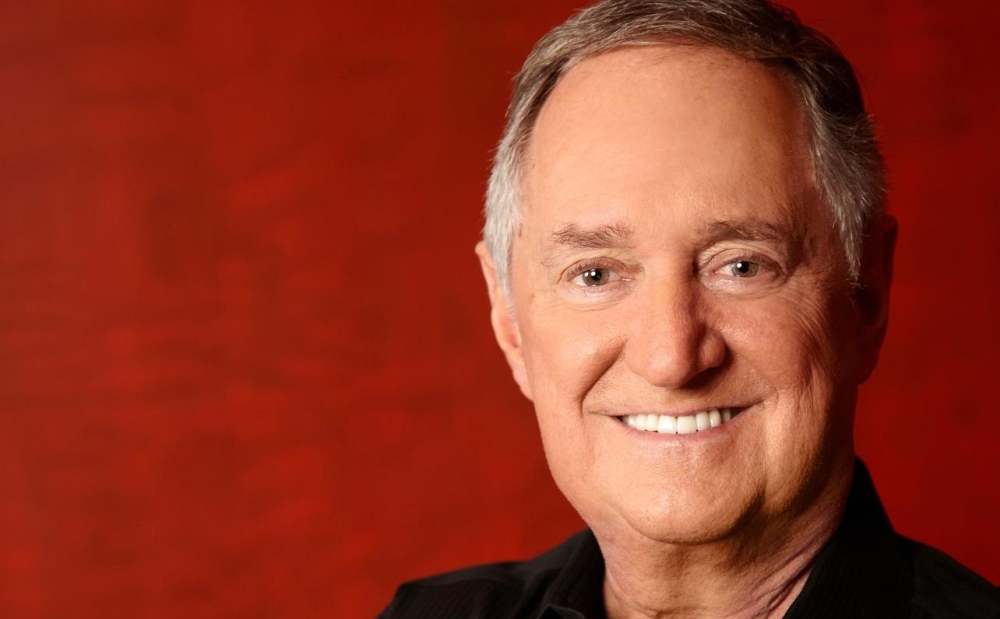LOS ANGELES, Aug 9 — Singer Olivia Newton-John, who soared to the top of the world’s pop music charts in the 1970s and 1980s with such tunes as I Honestly Love You and Physical and starred in the hit movie musical Grease, died on Monday at age 73 at her home in Southern California.
The death of the British-born, Australian-raised performer was announced on her Instagram account, saying she “passed away peacefully” at her ranch home “surrounded by family and friends.”
Newton-John, a four-time Grammy winner, had disclosed in 2017 that a recurrence of breast cancer had metastasised and spread to her lower back, forcing her to cancel performances. Twenty-five years earlier Newton-John had undergone a partial mastectomy, leading her to become an advocate for breast cancer research and other health issues and to establish a cancer treatment-research facility in Australia.
The entertainer began performing as a child and became a global superstar after moving to the United States. She was blond, blue-eyed and brimming with wholesomeness when she had her first hit in 1971 with If Not for You — a Bob Dylan song that also had been recorded by George Harrison.
It would be followed in the next few years by Let Me Be There, which won her a Grammy for best female country vocal performance, If You Love Me (Let Me Know) and two No. 1 songs, Have You Never Been Mellow and I Honestly Love You. The latter song won Grammys for best female pop performance and record of the year.
Newton-John also clinched the Country Music Association’s female singer of the year title in 1974, edging out such homegrown American stars as Loretta Lynn and Dolly Parton. The unlikely success of an Australian performing country-flavoured pop songs bothered many Nashville purists at the time.
Critics did not always care for Newton-John’s work, often finding her style frothy and overly commercial. The New York Times once described her voice as “nearly colourless.”

Movie stardom with ‘Grease’
But the criticism did not hurt Newton-John’s sales, and she cemented her acclaim by co-starring with John Travolta in Grease, the 1978 film that would become one of the most popular musicals in Hollywood history.
In the film, set in the 1950s, Newton-John’s prim character, Sandy, has a summer fling with Danny, the “greaser” portrayed by Travolta, but the relationship falls apart over cultural differences. In the end they reconcile as their roles reverse, with Danny cleaning up his act, and Sandy making a striking appearance in a tight, black leather outfit.
Travolta, 68, addressed a tribute to his co-star on Instagram, saying her “impact was incredible.” “My dearest Olivia, you made all of our lives so much better,” the actor wrote.
“I love you so much. We will see you down the road and we will all be together again. Yours from the first moment I saw you and forever! your Danny, your John!” The film’s producer, Allan Carr, had sought Newton-John for the female lead after being impressed by her at a dinner party, and Travolta also urged her to take the part.
The singer was initially reluctant because of her negative experience in the awkwardly titled 1970 British film flop Toomorrow and worried about hurting her recording career. She also was concerned about doing an American accent, so the part was rewritten to make Sandy an Australian.
The film, based on the 1972 Broadway hit musical of the same name, was a major critical and commercial success, and its soundtrack generated a string of hits, including the title song, Newton-John’s Hopelessly Devoted to You, Summer Nights, and her bouncy duet with Travolta, You’re the One That I Want.
“I’m grateful for Grease,” she told the Detroit News in 2016. “The movie and the songs are still so loved.” Her next musical film, Xanadu in 1980, was a bust but did give Newton-John more hits in the title song and Magic, which reached No. 1.
In 1981 Newton-John scored her biggest hit single, Physical. The song’s accompanying video featured her in work-out clothes and a headband, which fuelled a fashion trend. Its sex-infused lyrics (“there’s nothing left to talk about unless it’s horizontally, let’s get physical”) eroded her good-girl image and led some radio stations to ban it.
Newton-John’s career cooled off after Physical but in 2015 she had another No. 1 hit on the dance charts — You Have to Believe, a revamped version of Magic performed with her only child, Chloe Lattanzi.
She would make another movie with Travolta, Two of a Kind in 1983, and they recorded an album of Christmas songs in 2012.
Newton-John, whose sister died of brain cancer, became an advocate after her first bout with breast cancer, and she founded the Olivia Newton-John Cancer Wellness and Research Centre in her hometown of Melbourne. She also marketed what was known as the Olivia Breast Self-Exam Kit.
Newton-John, whose grandfather was German-born, Nobel Prize-winning physicist Max Born, finished fourth in the 1974 Eurovision Song Contest, representing the United Kingdom.
Her first marriage, to Xanadu actor Matt Lattanzi, ended in divorce in 1995, and in 2008 she married businessman John Easterling. — Reuters






















